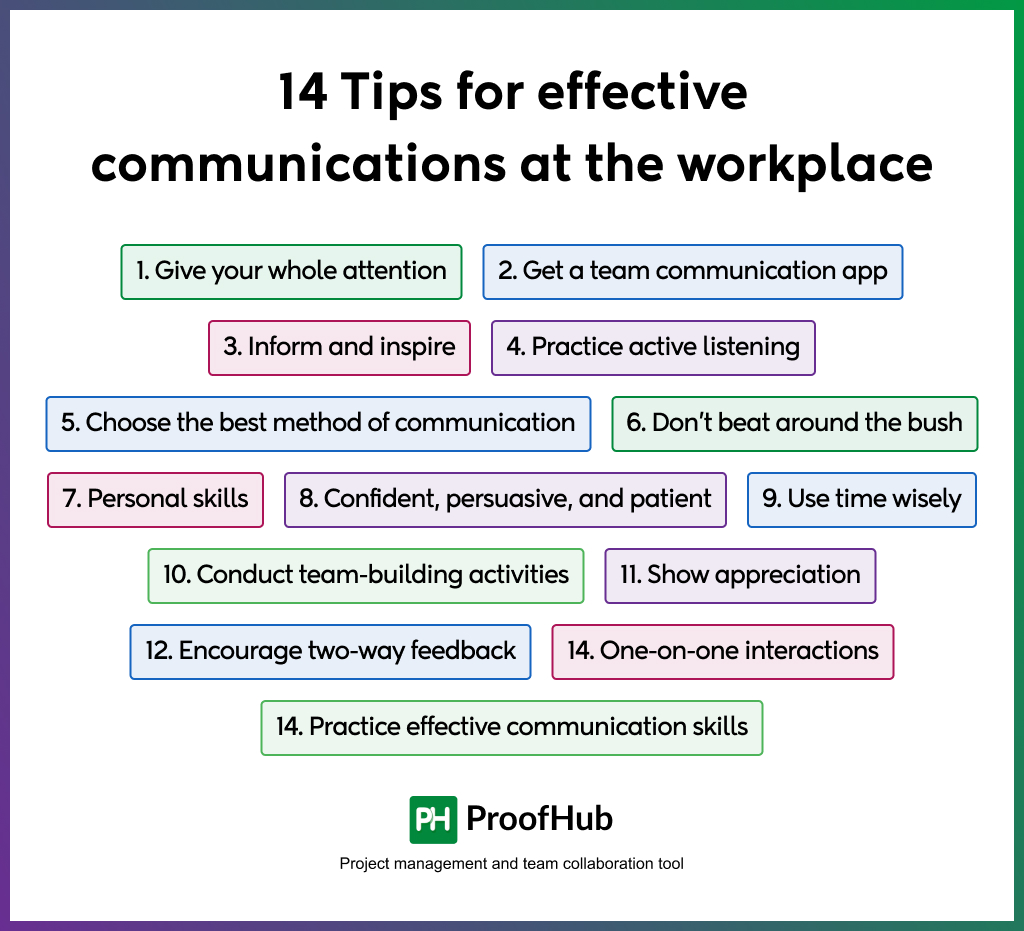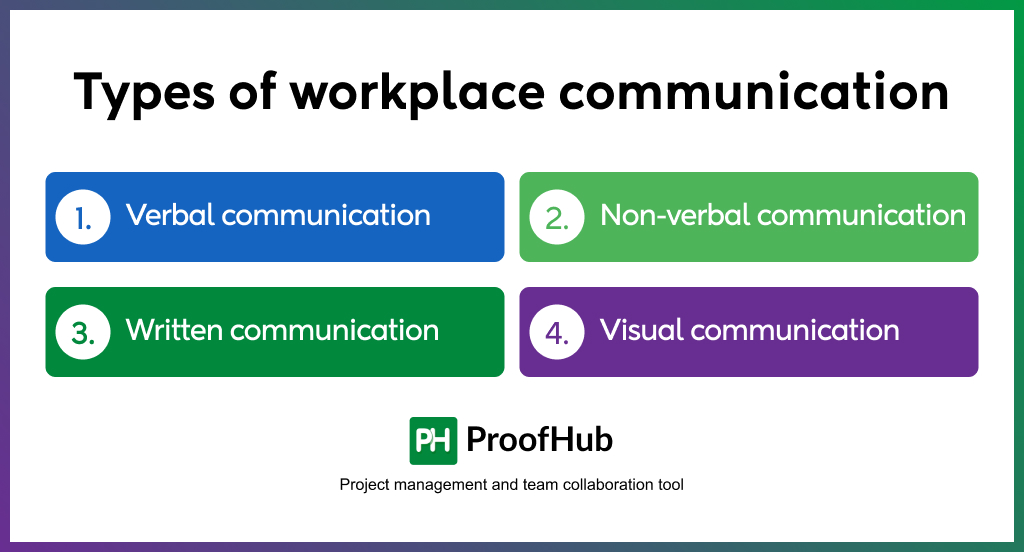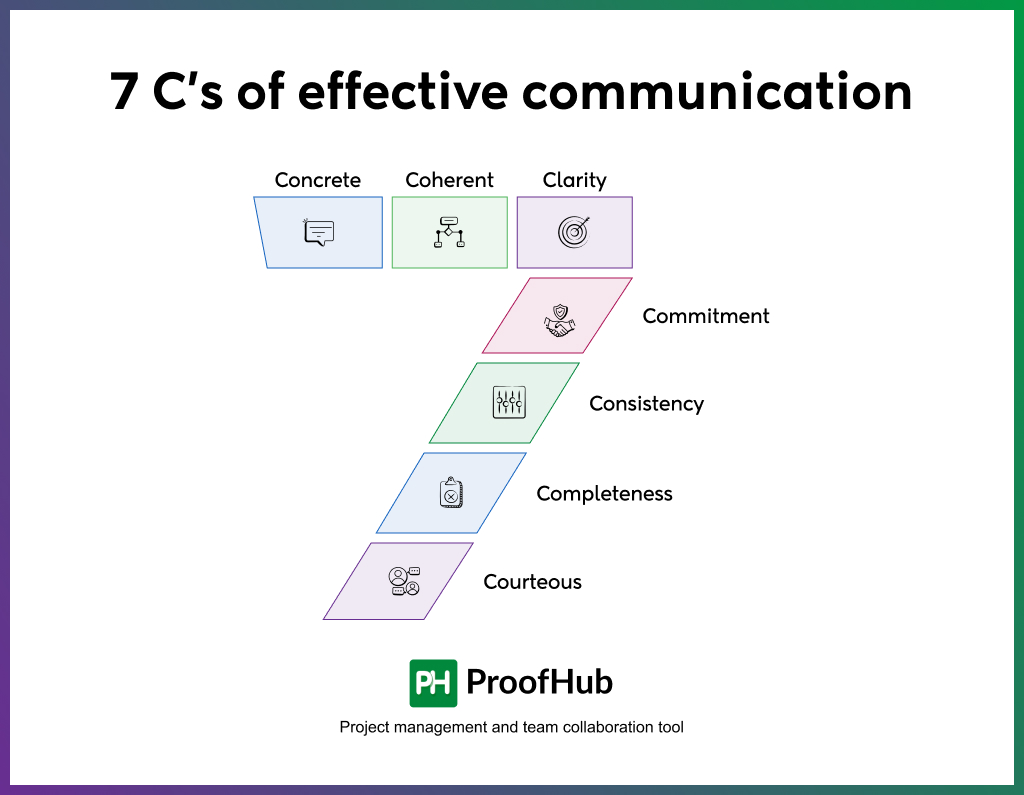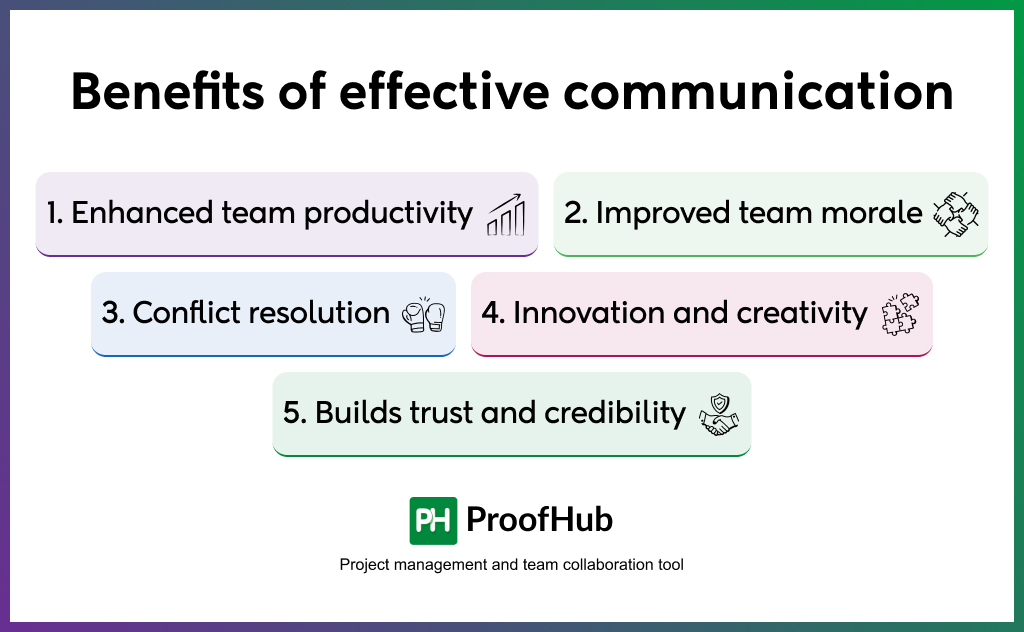Introduction
Effective communication is the cornerstone of successful teams and organizations. It involves more than just words; it requires active listening, empathy, and a thoughtful selection of channels and language.
In the workplace, clear and efficient communication is crucial for fostering understanding, collaboration, and overall productivity.
What is effective communication?
Effective communication is the bridge that connects individuals, enabling them to share information, build relationships, and collaborate with precision and empathy. It involves active listening, empathy, and choosing appropriate channels and language.
Good communication in the workplace is not merely about speaking or writing; it’s about conveying messages in a way that is understood and fosters a meaningful connection. Whether in personal relationships, professional settings, or broader social contexts, mastering the art of effective communication is essential for success and building stronger connections.
Effective workplace communication
Efficient work requires deliberate efforts to connect and build relationships. Utilize top team communication tools for maximum productivity.
Effective workplace communication is the clear and efficient exchange of information within an organization. It involves using suitable channels, active listening, and clear articulation for understanding, collaboration, and productivity.
Connection and progress: In the workplace, effective communication is about creating inclusivity and ensuring everyone feels heard. It facilitates goal accomplishment and overall progress for the team.
Key focus: Avoid interruptions and information blocks. Effective workplace communication ensures timely access to necessary information, eliminating the need for repetitive requests and fostering a smooth workflow.
14 Tips for effective communications at the workplace

1. Give your whole attention
Have you ever been in communication where someone was busy looking at their smartphone while talking or listening to you?
That’s called being absent-minded. It’s a sign of poor communication. Communicating effectively at work requires your whole attention. Therefore, be mindful of how you’re communicating.
Offering a full focus by maintaining eye contact during conversations and meetings will contribute greatly to effective communication. Nod your head affirmatively while in a conversation to convey your focus visually.
2. Get a team communication app
In today’s workplace, lack of communication can lead to major issues. Team communication apps are getting quite popular for seamless collaboration, replacing lengthy email threads.
To ensure proper effective communication in the workplace, invest in productivity tools like task management software. It streamlines communication, allowing the team to meet up and share information in one place, eliminating the need for cumbersome email threads. Embrace digital transformation for efficient communication in the modern workplace.
The moral of this story is that if you don’t have proper communication channels set up in your workplace, you will waste a lot of time doing things that aren’t getting your projects done. Luckily for you, there’s an easy way to fix this problem: team communication software like ProofHub.
3. Inform and inspire
More than just passing on the information, be careful of explaining and clarifying your thoughts and ideas to have an effective one. Passing the information is just half the equation.
Plan what you want the audience to remember from the conversation. Do you want them to take any kind of action? The most effective communication will make your people take action.
4. Practice active listening
Another helpful tip for good communication in the workplace is to practice active listening. Employees who listen well tend to work better. Listening is twice as important as talking and one big important part of effective communication skills in business.
Listening should not be taken for granted. Do not just sit back, barely awake, letting the speaker’s words wash over you. The more you listen well, the better you receive the information.
Do you know how to listen well? Here’s how?
- Make eye contact with the speaker
- Respond appropriately
- No interruptions, please
- Examine your body language
5. Choose the best method of communication
To communicate well means to understand and be understood. Knowing the right methods of communication is as important as having effective communication skills.
- Visual communication via charts, maps, images, and graphs.
- Verbal communication through face-to-face, by phone, and other media.
- Non-verbal communication through body language, eye contact, and gestures.
- Written communication through letters, e-mails, books, magazines, and the internet.
6. Don’t beat around the bush
Keeping in mind the importance of communication at the workplace, the next big thing is clear, concise communication. Whether you’re into verbal communication or non-verbal communication, do not get into a long speech to get your point across. You do want to respect everyone’s time, so be brief, and to the point, and balance brevity with a human touch.
7. Personal skills
Interpersonal communication skills will do good for both your professional and personal life. You will need it every day in your life. It includes skills related to emotional intelligence or being able to understand your own and others’ emotions.
For example, high self-esteem and confidence can help you have more positivity about yourself and what you can do, including communication. And positivity leads to effectiveness.
8. Confident, persuasive, and patient
For effective communication in the workplace, you need to be confident, persuasive, and patient. There is a difference between being able to communicate and communicating effectively.
Along with the above effective communication tips, having just a little patience, confidence and persuasiveness can help you communicate your information more effectively. Confidence means taking care of what your body language is. Your sense of self-worth will make you feel effective, rather than helpless. And for that, you can
- Smile
- Keep your arms uncrossed
- Maintain an erect posture
- Maintain eye contact
- Keep your devices away
9. Use time wisely
The next thing that you can do to clear communication in the workplace is, you start using your time wisely at the workplace. And you must be curious to know how it will help you.
So for example, utilizing coffee breaks can keep the team-building spirit strong and allow everyone to get to know each other better. Team bonding is a better way to improve communication channels.
Coffee breaks are an ideal opportunity for informal meetings and discussions. It encourages healthy communication amongst colleagues and also promotes the exchange of ideas.
Let your team members have coffee breaks at the same time to create an ideal environment for team members to relax and discuss issues. This art of conversation will often encourage the team to discuss work as well. Thus coffee will not only act as an energy booster throughout the day but also promote productivity with relaxed conversations.
10. Conduct team-building activities
Team building activities have a great impact on the productivity and overall teamwork of your team. It can help your team to build good relationships with one another and spread effective communication in the workplace as well.
Create structured opportunities for your employees to collaborate through activities like team lunches, icebreaker games in meetings, group meetings, fitness sessions, puzzle-solving games, or any outdoor activity. You can schedule these activities at the end of the month or weekly to get your team together in the room.
11. Show appreciation
Tell your employees, coworkers, and colleagues about how much you care and respect them humorously. Showing appreciation is an effective way to deal with low employee morale and to make your team members feel like they matter.
This is a method to promote communication in the team. Give a token of appreciation to your team members by congratulating them for great ideas, thanking a team member for finishing a task, and expressing gratitude even for small acts that boost their self-esteem.
12. Encourage two-way feedback
To have a smooth work environment, it is important to have two-way communication. In the workplace, feedback is important to generate results, where the main objective is to strengthen progress towards company goals.
A common mistake that leaders make when offering feedback is turning it into a one-way dialogue (feedback). They give no opportunity to employees to present their comments and concerns.
Encouraging two-way feedback is a sign of good communication in the workplace that will give your team a chance to self-evaluate which makes them feel happy. Give detailed feedback to increase team communication and to coach your team members. You can keep a written record of feedback via your task management system which can help to increase overall team communication and productivity.
13. Having one-on-one interactions
Successful teams are made of team members who are purposeful in their interactions. One-on-one interactions are important with every individual you hire to make sure employee engagement doesn’t fall short in your workplace.
During these interactions, set your expectations and needs. Tell them about what your project demands, and what are the norms of your company for employees, and give them adequate preparation time to maximize their potential.
When having one-on-one interactions, make sure you know when to listen to what your employees have to say. The leaders need to put their best foot forward for their new hires to get to the bottom of things.
14. Practice effective communication skills
Growing better communication habits for the future means practicing effective communication skills and being a powerful communicator. But what are the examples of effective communication? Well, here are 3 communication skills you should work on:
- Be aware of your body
Your body tells a story about you.
- Crossed or folded arms – Defensiveness
- Hands held behind the body – Confidence
- Mending clothes, accessories, watch– Nervousness
- Clenched fists – Anger or anxiety
- Squeezing hands – Self-soothing
- Active listening – That means being completely present in what the speaker is trying to impart.
- Delivering with confidence – You need to develop a strong delivery by being patient, kind to yourself, and slowing down.
- Keep it positive– Last but not least, try to stay positive. No matter whatever state of mind you are in, being positive will save you from getting into a bad conversation.
What is the importance of effective team communication in the workplace?
Effective communication serves as the cornerstone for building successful teams, allowing each member to freely express their thoughts and ideas without fear of backlash. It creates an environment where open dialogue flourishes, fostering a culture of trust and collaboration. This not only increases employee engagement but also cultivates a more productive and talented workforce.
As per the findings of the “2023 Business Communication Landscape” report, conducted by the Harris Poll and commissioned by Grammarly, it was revealed that 72% of business leaders believe that effective communication has increased their team’s productivity, and 52% of knowledge workers agree.
Types of workplace communication

- Verbal communication: conversations, interviews, calls
- Intrapersonal – conversations with ourselves
- Interpersonal – one-on-one conversation
- Small group – press conferences, board meetings, and team meeting
- Public – presentation, public speeches
- Non-verbal communication: voice tone, facial expressions, postures
- Written communication: letters, memos, reports
- Visual communication: photographs, videos, films
What are the 7 C’s of effective communication?

To make sure you communicate in the most effective manner possible, you need to know what are the 7 principles of communication.
Therefore, the below list of the 7Cs of communication, also known as the 7 principles of communication, will provide you with a useful checklist to ensure good communication in the workplace.
1. Concrete
When the message that you want to convey is concrete – not liable to have fallen, your audience (team or clients) will have a clear picture of what you’re trying to tell them.
It will only be concrete when it has suitable data that backs it up. Your argument should be supported by factual material that includes data and figures, leaving no space for the audience to imagine things.
2. Coherent
The whole point behind your message will be useless when you are not coherent. You need to have a good understanding of what goes where and what comes when.
Coherent communication is logical. It is a well-planned, logical, and sequential manner of communication. There should be a good connection with the main topic and the flow should be consistent.
3. Clarity
The purpose of your message should be clear so that the reader doesn’t head up scratching his/her head to understand what you mean. Be clear about what format you want to say it in. Be clear about your goal or purpose. Your readers shouldn’t have to make assumptions regarding what you’re trying to say.
For example, the sentences should be short, prefer the active voice, and state them in separate bulleted points.
4. Commitment
Commitment is a major part of workplace communication skills. It simply measures one’s dedication and the degree to which one communicates surety in the argument. It convinces the prospects kindly. A well-committed message will leave a greater impact and increase your morale.
5. Consistency
The choice of words matters when you are communicating at work. Your words shouldn’t leave your team confused. You need to communicate your message in the least possible words and have the consistency of tone, voice, and content so that you can save time. There is no room for repetition. Try to use short sentences and short words.
6. Completeness
Never leave your sentences incomplete. Each message must have a logical conclusion. People shouldn’t be left wondering if there is more to come. Make sure you communicate completely including the need to be informed and take action.
7. Courteous
Let’s keep it positive. Your argument should make the other person respectful. Try your best that in your communication you’re honest, respectful, open, and polite. Say it with proper care and it will be perfectly effective and important. Offensive words can put off people.
Remember it starts with you creating new effective habits to improve communication in the workplace. You can not ignore how you communicate. Grow to be a good communicator to have strong conversations.
What are the benefits of effective communication?

- Enhanced team productivity: When managers communicate clearly, team members understand their roles and objectives more precisely, leading to increased productivity and efficiency.
- Improved team morale: Open and transparent communication fosters a positive work environment. Employees feel valued and included, contributing to higher job satisfaction and morale.
- Conflict resolution: Effective communication is the key to resolving conflicts. Managers who can navigate difficult conversations with tact and empathy foster a culture where conflicts are addressed constructively, rather than being left to fester.
- Innovation and creativity: A culture of effective communication encourages the free flow of ideas. Team members feel more comfortable sharing their thoughts and contributing to the innovation and creative process.
- Builds trust and credibility: Trust is the bedrock of any successful team. Managers who communicate honestly and transparently build trust and credibility with their teams, creating a foundation for long-term success.
Effective communication with ProofHub
In any successful workplace, having a single hub for all your communication and work is a game-changer. Tools such as ProofHub, a robust project management and team collaboration platform, play a pivotal role in establishing a central source of truth for all communication and work-related information.
Dive into ProofHub to make teamwork smoother, boost collaboration, and manage projects like a pro – it’s your essential tool for getting things done right.
Related articles

